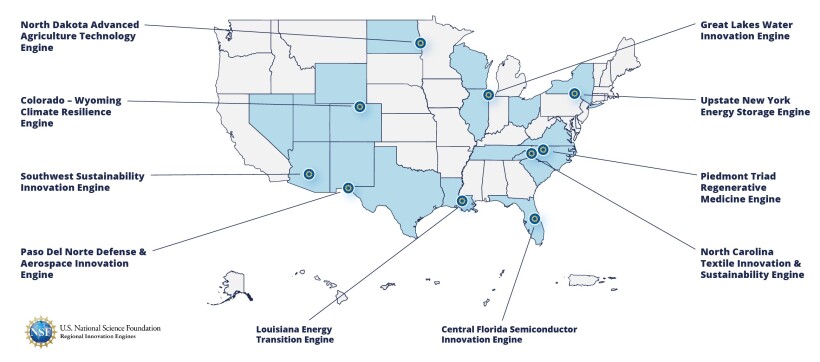NSF Announces First Winners of Major ‘Engine’ Awards

A map of the National Science Foundation’s 10 inaugural Regional Innovation Engines.
(NSF)
On Monday, the National Science Foundation announced
Selected from among 16 finalists,
- The Central Florida Semiconductor Innovation Engine,
- The Colorado - Wyoming Climate Resilience Engine,
- The Great Lakes Water Innovation Engine,
- The Louisiana Energy Transition Engine,
- The North Carolina Textile Innovation and Sustainability Engine,
- The North Dakota Advanced Agriculture Technology Engine,
- The Paso del Norte Defense and Aerospace Innovation Engine,
- The Piedmont Triad Regenerative Medicine Engine,
- The Southwest Sustainability Innovation Engine, and
- The Upstate New York Energy Storage Engine.
The regenerative medicine and sustainable textiles Engines were announced separately
In announcing the awards, NSF said that some of the remaining finalists and semifinalists will be invited to apply for Engines Development Awards,
The White House also highlighted how other agencies will support Engine awardees in a press release.


